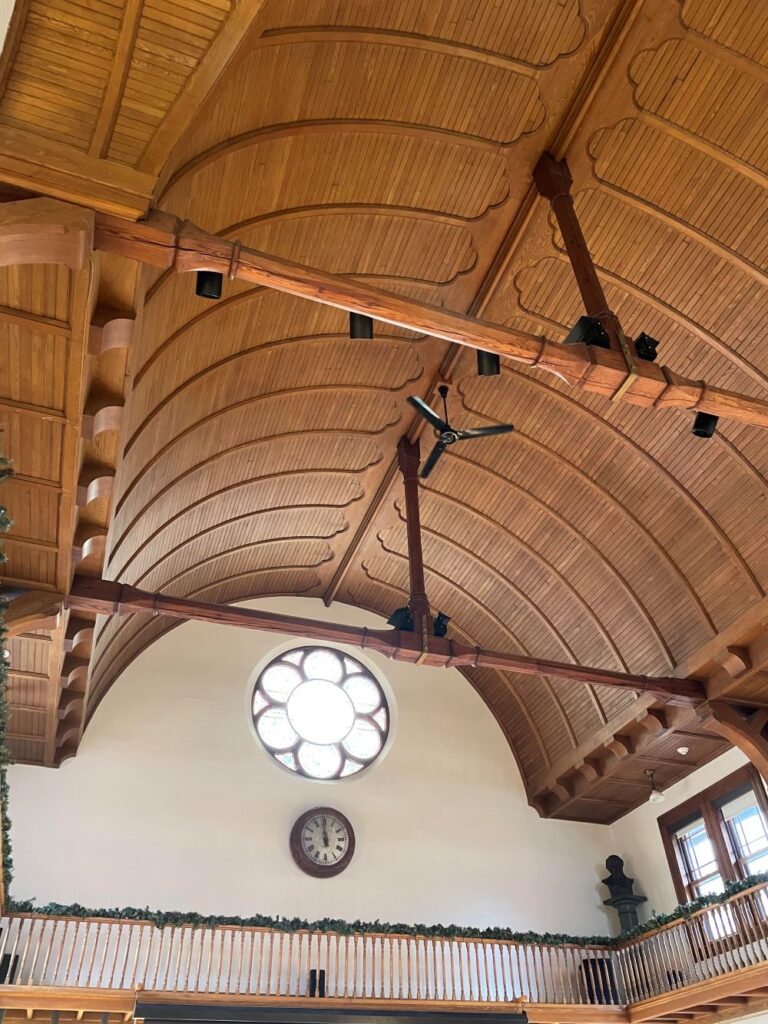Helping the Enviorment
Two Town Buildings Install Heat Pumps to Reduce Oil Consumption
By Bina Thomson
Norfolk has worked hard to establish itself as a champion of the environment, and two key town non-profits are continuing that work. The Norfolk Library and the Church of Christ on the green have installed heat pumps as a way to reduce oil consumption and make better use of natural resources for heating and cooling.

Overhead fans in the Great Hall continue to keep heat from the heat pumps in the lower part of the room.
During the month of October, both the library and the church installed heat pumps, although each building installed a different type. The church installed mini-split heat pumps in the office and classroom addition to Battell Chapel to provide heat and air conditioning. A large fan will be installed in the chapel as well, to push over-heated air down from the vaulted ceiling. “It’s very exciting,” said Rev. Erick Olsen. “It’s been our goal for years to reduce the amount of oil we use. We are spending a lot of money and harming the planet—which is not in line with our values.”
The Norfolk Library installed air-source heat pumps, which work to transfer heat between indoor air and outdoor air. The library building was a great candidate for such a heating system as many of the necessary systems were already in place. The heat pumps work to provide heat through the forced air system down to external temperatures of about 32 degrees Fahrenheit. If the outside air temperature drops below freezing, the newly installed “smart” thermostats automatically call for the back-up oil heat. Overhead fans in the Great Hall continue to keep heat in the lower part of the room. There was no disruption to library services during installation, due to the professionalism of Shawn MacArthur and his crew from Advanced Mechanical Services of Farmington, Conn. (who also did the church heat pump installation).
For both the church and the library, the heat pump systems will reduce the total oil and electricity consumed and, considering the grants from the State of Connecticut each received, will pay for themselves in four to seven years.
Air-source heat pumps work well in all buildings of all sizes. The simple mini-splits are easy to install and cost-effective in smaller structures. For larger “split-system” heat pumps – as installed in the library – similar pay-backs will result if forced air ducts are already in place.
The library and Church of Christ often partner on environmentally-focused programs, and it seems fitting that both have taken the initiative to adjust their heating systems at this time. “There are a lot of issues where, if we each could reduce our oil consumption even 10, 20 or 30 percent, it would make a tremendous difference. That’s what the church’s Missions and Social Justice Committee has to do with oil.” Said Alesia Maltz, a member of the church’s Clean Energy Task Force. “We’re trying to walk our talk.”
